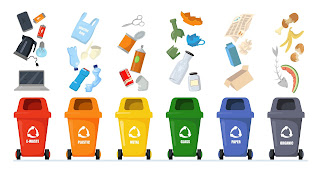Waste Management Industry Trends: The Role of Swagcycle in Sustainable Solutions
The waste management industry is rapidly evolving to meet the growing demands for sustainability, environmental protection, and efficient waste disposal systems. These changes are driven by increasing urbanization, the rising awareness of environmental issues, and technological advancements. As a result, companies like Swagcycle are revolutionizing waste management by implementing innovative and eco-friendly solutions to manage waste effectively. Here, we explore the latest trends in the waste management industry and the role Swagcycle plays in shaping the future of waste management.
1. Emphasis on Sustainability
Sustainability has become the cornerstone of the waste management industry. With climate change concerns intensifying, businesses and governments alike are adopting greener practices. Waste management companies are increasingly focusing on reducing the environmental footprint of their operations. Swagcycle, for instance, integrates sustainability into its core business strategy by prioritizing waste diversion through recycling and composting programs. The company’s advanced sorting technology ensures that recyclable materials are processed efficiently, while organic waste is transformed into nutrient-rich compost, promoting a circular economy.
2. Technological Advancements
Technology is revolutionizing the waste management industry. Automation, machine learning, and artificial intelligence (AI) are being utilized to optimize waste collection, sorting, and recycling processes. Swagcycle leverages cutting-edge technology to streamline waste processing and reduce human error, making waste management more efficient. AI-powered sorting systems help separate recyclables from non-recyclables, significantly increasing the recovery rate of valuable materials. Furthermore, sensor-based systems in waste bins and trucks monitor waste levels, optimizing collection schedules and reducing fuel consumption.
3. The Rise of Zero-Waste Initiatives
A growing trend in the waste management industry trends is the adoption of zero-waste initiatives. The goal of these initiatives is to reduce waste sent to landfills and incinerators, promoting a circular economy where products are reused, repaired, and recycled. Swagcycle is at the forefront of this movement, offering businesses and municipalities solutions to minimize waste production. Through educational programs, waste audits, and the implementation of composting and recycling systems, Swagcycle helps its clients achieve their zero-waste goals while reducing their environmental impact.
4. Data-Driven Decision Making
Data is becoming a vital asset in the waste management industry. The use of data analytics helps companies understand waste generation patterns, improve operational efficiency, and optimize waste disposal routes. Swagcycle uses data-driven insights to enhance its waste management processes. By analyzing waste patterns, the company can identify areas where waste reduction efforts should be concentrated and improve the overall performance of waste collection operations. Data also helps Swagcycle track the progress of its clients' sustainability goals, ensuring transparency and accountability.
5. Extended Producer Responsibility (EPR)
Extended Producer Responsibility (EPR) is a growing trend in waste management, where producers are held accountable for the entire lifecycle of their products, including the disposal of waste. This policy is gaining traction worldwide, as it encourages manufacturers to design products with sustainability in mind and take responsibility for the waste generated after their products reach the end of their life. Swagcycle works with businesses to implement EPR strategies, helping manufacturers reduce their environmental impact by managing product waste more effectively through recycling and proper disposal channels.
6. Waste-to-Energy Solutions
Waste-to-energy (WTE) technologies are becoming increasingly popular as a way to reduce the volume of waste sent to landfills while simultaneously generating renewable energy. WTE technologies include incineration, anaerobic digestion, and pyrolysis, all of which help convert waste into electricity, heat, or biofuels. Swagcycle is exploring partnerships with WTE technology providers to integrate waste-to-energy systems into its waste management solutions. This not only reduces landfill waste but also contributes to energy production, further supporting sustainability goals.
7. Collaboration and Partnerships
Collaboration between governments, businesses, and waste management companies is becoming essential to tackling the global waste crisis. By working together, stakeholders can share resources, data, and expertise to create more effective waste management systems. Swagcycle understands the importance of collaboration and often partners with local governments, businesses, and environmental organizations to develop customized waste management solutions that address specific needs. These partnerships are essential for fostering a circular economy and achieving long-term sustainability goals.
In conclusion, the waste management industry is experiencing significant changes, driven by the need for sustainability, innovation, and efficiency. Swagcycle is a key player in this transformation, offering cutting-edge solutions that align with the latest industry trends. By embracing technology, sustainability, and data-driven decision-making, Swagcycle is helping to pave the way for a cleaner, greener, and more sustainable future.




Comments
Post a Comment